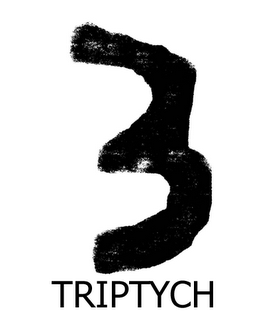Deborah Harty & Phil Sawdon
Triptych: ‘∆’: Reflecting on Drawing Practice as Knowledge
You can view the complete Triptych Project for Deborah Harty & Phil Sawdon by clicking on the 'LUSAD' link in the sidebar.
You are requested to provide no more than 50 word answers to the following:
DH: Deborah Harty
PS: Phil Sawdon
Has working on this subject/theme altered your drawing process in any way?
PS: I make art(ef)(f?)a(e?)cts as a process of symbiotic and mutually dependent relationships so questions, answers and effects are creatively altered and tautological.
DH: My process of making is an individual undertaking determined by reflection on personal experiences and experimentation withmaterials. The collaboration has not altered the creative process but the stimulus for the work has changed and the consideration of another, namely yourself!, has had to be taken into consideration.
PS: Consideration is completely apposite. Thoughtful concern and esteem are imbedded within its meaning and I think are very appropriate to successful collaboration.
Has the idea of a possible collaborative outcome altered your thinking/working methods in any way?
PS: I am altered by 'another' in a collaboration that is aware of a collaborative outcome, i.e. a collaboration squared as part of a three way collaboration feels like surreal mathematics.
DH: Absolutely!.....Hmmm.....although during the process of making how much do you consider the collaboration it is to become when you are dealing with and responding to, the collaboration it is?
PS: In my case not at all other than I collaborate to in order to be a collaborator and have only a marginal interest in the next phase during this phase. My interest is in immediate response with no real eye to the next phase.
How has the experience of your practice being reviewed and viewed by your peers in Triptych influenced the work?
PS: I am not aware that I am aware of others other than my collaborator.
DH: I would agree, I was aware the 'outcome' would form part of a collaboration beyond that of the collaborative making at the start of the project, but immersion in the process of making focused the intent on the work progressing not the viewing and reviewing of outcomes.
Have you discussed this piece of work/process with anyone else in Triptych while carrying out the work?
DH: Only my collaborator!
PS: ditto, ibid
Has anything you saw at the Triptych IMMA symposium influenced your thinking or process in any way?
DH: Not from the symposium as far as I am aware but the experience of working with another, when used to such a personal pursuit, has offered the opportunity to challenge what has become a very personalised method of working and thinking.
PS: I agree. The symposium was concerned with overcoming first date nerves and what has followed has been a consequence of the project developed from the symposium so I suppose it could be argued that that is an influence.
What collaborative outcome would you suggest as being appropriate for this research group?
DH: It will probably depend on the project outcomes of the research group members. Will be interesting to have the opportunity to 'view' others responses.
PS: A further collaboration!


